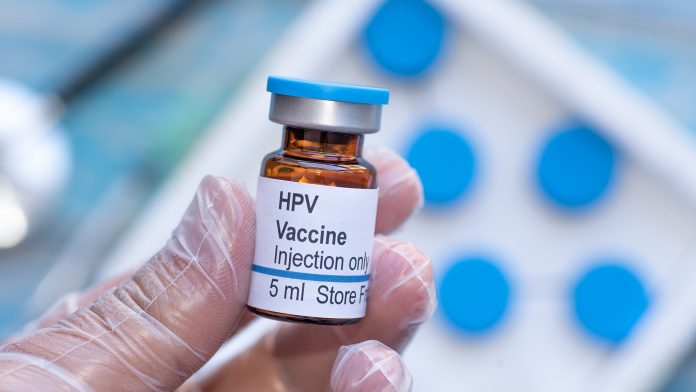
New research has demonstrated that a single dose of the HPV vaccine is up to 97% effective, a significant advancement for preventing cervical cancer.
A report published by the World Health Organization (WHO) in 2018 elucidated that cervical cancer is the fourth most common cancer among women globally, with human papillomaviruses (HPV) being a primary cause of the disease. Now, novel research has indicated that a single dose of the HPV vaccine is 97% effective, potentially saving millions of lives worldwide.
The results of the study were presented this month during the 34th International Papillomavirus Conference in Canada.
Mitigating cervical cancer
In 2018, the WHO estimated that around 570,000 women were diagnosed with cervical cancer worldwide, with up to 90% of deaths occurring in low- and middle-income countries, such as those in Sub-Saharan Africa.
Cervical cancer occurs in the cervix cells – the lower part of the uterus that connects to the vagina – with about 99% of cervical cancer cases linked to infection with human papillomaviruses through sexual contact. However, despite cervical being extremely preventable, challenges in combatting the disease in low- middle-income countries persist due to poor uptake of the HPV vaccine.
Maricianah Onono, the senior principal clinical research scientist at the Kenya Medical Research Institute and a co-author of the study, said: “In low- middle-income countries, low vaccine coverage is due, in part, to the cost and logistics of reaching girls with a standard multi-dose vaccine schedule.”
Examining HPV vaccine performance
To test the efficacy of the HPV vaccine, the researchers randomly selected adolescent girls and young women in Kenya and assigned them into three groups. 760 received a single-dose HPV vaccine that covered two strains of HPV, 758 were administered a single dose that covered seven strains of HPV, and 757 were given a vaccine for protection against meningococcal meningitis.
The investigation started in December 2018. The researchers assessed whether a single dose of the HPV vaccine could achieve similar effects as the current three-dose regimen for girls and young women. After 18 months, the HPV vaccine demonstrated 97.5% effectiveness against HPV.
Onono commented: “Our data covers 18-24 months, and we hope to follow up these girls for up to 60 months to answer the question of durability.”
Onono explained that even though multi-dose strategies are recommended for these vaccines, the single-dose HPV vaccine effectiveness is equivalent to the standard two or three-dose regimens given to girls under the age of 15. He stated that the single-dose vaccine would help to simplify logistics and costs of delivery, imploring health policymakers to increase the availability of the vaccine to tackle cervical cancer.
He said: “At the population level, increasing vaccine coverage increases effectiveness; vaccination of multi-age adolescent cohorts (nine to 14 years) with catch-up vaccination (to age 26 years) doubles the prevention of HPV-associated precancerous lesions.”
Stanley Aruyaru, director of medical services at Kenya’s St. Teresa Mission Hospital in Meru, said: “This study has shown that just one dose is as good as multiple doses. This will cut the costs by half and abolish the logistics that impede the uptake of the multiple doses. With the promising trials and findings of this study, there is hope. The future in terms of vaccine coverage for prevention of cervical cancer will be good.”






















